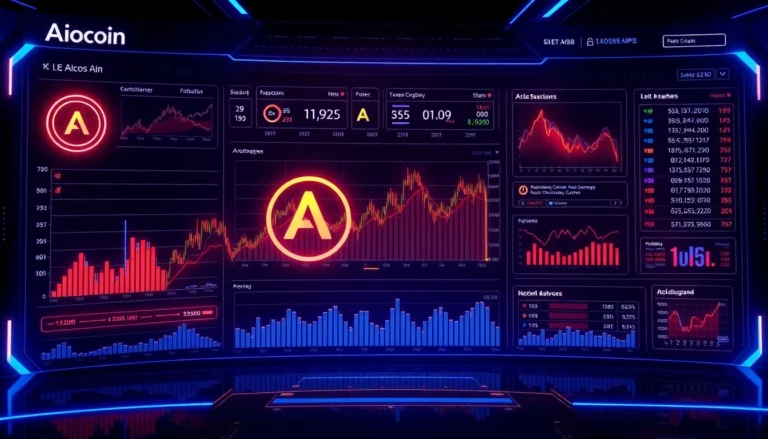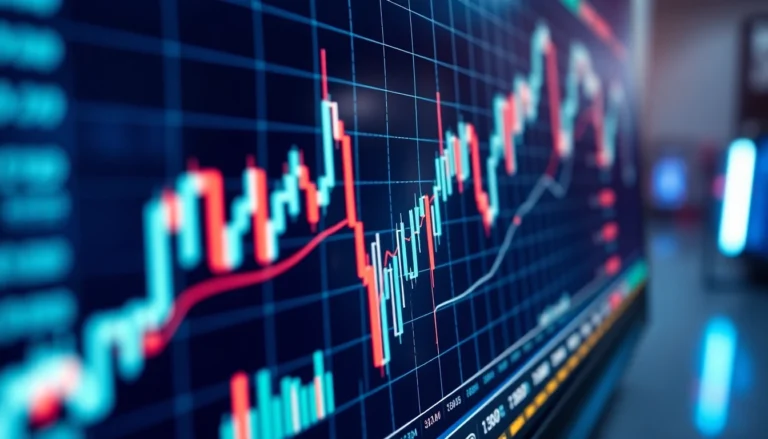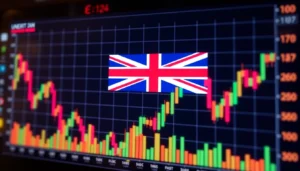Introduction to Global Market News and Its Significance
In today’s interconnected world, Global Market News serves as a vital barometer for investors, policymakers, and businesses seeking to navigate the complex landscape of international finance. From stock market fluctuations to geopolitical shifts, global news encapsulates a broad spectrum of factors influencing economic stability and growth. Understanding how these news flows impact investment strategies and market behavior is essential for making informed decisions that align with long-term financial goals.
Understanding the Impact of Global Market News on Investments
Market news acts as both a reflection and a driver of investor sentiment. For instance, data releases about economic growth, inflation, or unemployment can cause swift market reactions. When positive economic indicators emerge, markets often rally, boosting investor confidence. Conversely, geopolitical tensions or unexpected crises can trigger downturns. Analyzing real-time news, such as trade negotiations or policy announcements, allows investors to anticipate movements and adjust their portfolios proactively. Importantly, evaluating the credibility and source of news helps mitigate the risks of misinformation influencing investment choices.
How News Shapes International Financial Markets
The flow of global news influences currency markets, commodities, bonds, and equities. For example, central bank policy shifts—like interest rate hikes or cuts—are frequently announced through official statements and news outlets, directly affecting exchange rates and capital flows. International trade agreements or tariffs reported in news can alter supply chains, impacting sector performance and stock valuations worldwide. This interconnectedness means that a US-China trade conflict or Brexit development can ripple across markets globally, underscoring the importance of staying abreast of international news for diversified portfolio management.
Overview of Recent Major Market Movements
Recent market movements exemplify the profound effect of global news. As of late, the stock markets in the US and Europe have experienced volatility driven by tariff negotiations and inflation concerns. The Wall Street Journal reported that tariffs enacted between major economies led to a dip in equities, while safe-haven assets like gold surged amid uncertainty. Meanwhile, emerging markets have shown resilience or vulnerability depending on political stability and foreign investment levels. Keeping track of such trends through reliable sources enables investors to identify opportunities and potential risks promptly.
Analyzing Current Trends in Global Markets
Political and Economic Factors Driving Market Changes
Political stability, election outcomes, and policy reforms significantly influence markets. For instance, recent elections in major economies, such as India’s IPO surge or US fiscal policy debates, can lead to increased market volatility. Economic indicators like GDP growth rates, inflation figures, and unemployment data from different countries help gauge economic health, thus guiding investment decisions. During times of political upheaval or uncertainty, safer assets may attract more capital, while positive reforms can stimulate growth in particular sectors.
Technological Innovations Influencing Market Dynamics
Technologies such as artificial intelligence, blockchain, and automation are transforming how markets operate. They enhance data analysis, trader decision-making, and transaction efficiencies. For example, real-time analytics powered by AI improve the speed and accuracy of assessing market news, enabling traders to react instantly. Blockchain innovations are also impacting financial transactions and asset management. Staying updated on technological shifts through market news allows investors to identify emerging opportunities and adapt their strategies accordingly.
Sector Performance Highlights in Global Market News
Different sectors respond variably to global events. The energy sector often reacts to geopolitical tensions affecting oil supplies, while technology might benefit from innovations or regulatory changes. Recently, environmental policies promoting renewable energy have benefitted segments like solar and wind. Conversely, sectors heavily reliant on global supply chains, such as manufacturing, face risks during trade disputes or pandemic-induced disruptions. Analyzing sector-specific news helps in making targeted investment decisions and building resilient portfolios.
Tools and Strategies for Staying Informed
Utilizing Financial News Platforms and Data Sources
Reliable platforms such as Reuters, CNBC, Bloomberg, and Financial Times provide comprehensive coverage of global events. Integrating multiple sources ensures access to diverse perspectives and reduces the risk of misinformation. Subscription services or advanced dashboards offer real-time alerts, customized news feeds, and analytics tools to track market-moving events effectively. Using these sources consistently enhances situational awareness and supports data-driven decision-making.
Effective Techniques for Real-Time Market Monitoring
Practical strategies include setting up news alerts for specific keywords, utilizing technical analysis tools, and monitoring economic calendars for upcoming data releases. Advanced traders often employ automated trading algorithms that respond to predefined news triggers, allowing for rapid execution. Maintaining a disciplined approach—such as avoiding knee-jerk reactions and waiting for confirmation signals—helps mitigate impulsive decisions fueled by sudden news flashes.
Incorporating Market News into Investment Decisions
Successful investors integrate news analysis into their overall strategy by assessing the long-term implications of news events. This involves evaluating whether news reflects temporary market sentiment or fundamental shifts. Diversification and hedging strategies can help manage volatility induced by news-driven fluctuations. Additionally, maintaining a flexible asset allocation allows adapting to changing global conditions, maximizing opportunities while limiting downside risks.
Case Studies: Recent Global Market News Events
Impact of Tariff Uncertainty on Stock Markets
Trade tensions between major economies like the US and China have historically caused significant market swings. For example, during periods of tariff negotiations, stock indexes often decline due to anticipated supply chain disruptions and cost increases. Analyzing these events reveals that proactive risk management—such as sector rotation or strategic hedging—can mitigate adverse impacts.
Responses to Geopolitical Tensions and Crises
Geopolitical crises, such as conflicts in the Middle East or sanctions on specific countries, often lead to spikes in oil prices and currency volatility. Markets tend to react swiftly, with safe-haven assets gaining strength. Investors who monitor international news and geopolitical analysis can adjust positions accordingly, seeking opportunities in volatile environments or avoiding sector-specific risks.
Lessons Learned from Market Responses to Global Events
One key lesson is the importance of information speed and analysis. Markets tend to overreact to news initially, creating potential entry or exit points for savvy investors. Additionally, diversification remains crucial during unpredictable global events. Historical case studies reinforce the need for integrating news insights with fundamental and technical analyses to craft resilient investment strategies.
Forecasting Future Global Market Trends
Emerging Markets and Investment Opportunities
Emerging markets are poised for growth as technological adoption and demographic shifts accelerate. Countries like India and Southeast Asian nations are expanding middle classes and improving infrastructure, creating investment hotspots. Monitoring political stability, economic reforms, and technological advancements facilitates identifying promising opportunities.
Predicted Effects of Policy Changes and Economic Indicators
Anticipated policy shifts, such as new trade agreements, climate policies, or monetary reforms, can significantly influence market trajectories. For example, central banks’ moves to address inflation or stimulate growth shape interest rates, affecting bond yields and equities. Keeping track of upcoming policy announcements allows investors to anticipate market reactions and position accordingly.
Preparing Strategies to Navigate Future Market Fluctuations
Developing a robust plan involves setting clear risk parameters, maintaining liquidity, and employing diversification. Building flexibility into investment portfolios ensures adaptability to unexpected events. Incorporating scenario analysis and stress testing based on potential news developments helps prepare for various market outcomes.






